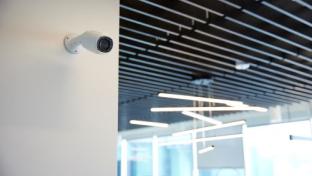Standardization via tech: The future of retail property services
Standardization of technology has the potential to completely transform the property maintenance services business.
On its face that statement seems odd. What does fixing a sink at the local grocery store or removing snow at a big box store have to do with technology? Actually, everything. Our industry is ripe for the kind of transformation that the airline, hotel, and home building industries have experienced through standardization, and success depends on the development and implementation of user-friendly technology interface to maximize the value of interior and exterior property maintenance services.
There is no singular solution for a national company to provide comprehensive property maintenance services to a diverse set of clients with locations across the United States, but technology can be a core contributing factor for a streamlined outcome.
Establishing a network of regional service centers to handle work directly is paramount for completing and overseeing projects. It’s also important to build and maintain a strong network of third-party service partners who can be deployed when needed. Using technology that issues work orders, tracks the lifecycle of the project, and verifies work completion—on time and on budget—is key to this type of hybrid service model.
It's a remarkably powerful service delivery system for property owners and managers and provides a distinct advantage. Both efficiency and service quality are enhanced dramatically through the right application of technology solutions. Ultimately, a standardized application creates tangible efficiencies for retail and commercial property maintenance services.
Property and facility maintenance is all about connecting supply and demand. By deploying technology to streamline the interface between the buyer of services on one hand – property owners, managers, and landlords large and small – and service providers on the other, including the standardization of the work order generation process and work order data content, for everything from minor repairs to full renovations, the industry takes an enormous step forward.
I would love to say the retail and property services industries are re-inventing the wheel because we are devoting considerable resources toward that goal, but in some ways we are blazing a trail parallel to the trails already created in other industries. Home builders utilize a common platform to order materials and complete work.
For instance, a master request is created for an entire subdivision and bulk orders can be completed with standardized SKU numbers for lumber, sheetrock, and many other items. The hotel and airline industries have been streamlined by similar platforms used by travel agents, online booking platforms and companies to search, price, book, and ticket travel services. The right technology solutions will do the same for the property maintenance services industry.
An ideal solution would leverage open APIs (application programming interface) and middleware. This would enable the various distributed systems across the industry to communicate with each other and manage data, ultimately reducing the need to develop redundant functionality from scratch and provide an integrated operational platform to meet the needs of property owners.
Through collaborating on a singular vision and strategy, property maintenance services technology stands to lessen redundant technologies, reduce technology spend, eliminate human errors from manual data entry, get closer to first-call resolution of property issues, and enable informed decision making with real time and transparent data.







